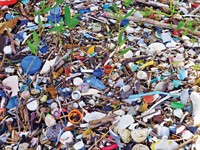Advertisement
Grab your lab coat. Let's get started
Welcome!
Welcome!
Create an account below to get 6 C&EN articles per month, receive newsletters and more - all free.
It seems this is your first time logging in online. Please enter the following information to continue.
As an ACS member you automatically get access to this site. All we need is few more details to create your reading experience.
Not you? Sign in with a different account.
Not you? Sign in with a different account.
ERROR 1
ERROR 1
ERROR 2
ERROR 2
ERROR 2
ERROR 2
ERROR 2
Password and Confirm password must match.
If you have an ACS member number, please enter it here so we can link this account to your membership. (optional)
ERROR 2
ACS values your privacy. By submitting your information, you are gaining access to C&EN and subscribing to our weekly newsletter. We use the information you provide to make your reading experience better, and we will never sell your data to third party members.
Environment
World’s environment officials set goal for contamination-free planet
Improved use of commercial chemicals, cuts in ocean plastic pollution needed, assembly says
by Cheryl Hogue
December 7, 2017

Top environmental officials from around the globe pledged on Dec. 6 to improve people’s lives by cutting contamination of land, air, fresh water, and oceans.
Meeting as the United Nations Environment Assembly in Nairobi, the officials set an international goal of a pollution-free planet. They did not establish a time frame for reaching this lofty objective, calling it “a long-term endeavor.”
“We have put the fight against pollution high on the global political agenda,” says Erik Solheim, head of the United Nations Environment Programme (UNEP).
One activity that must be improved to eliminate pollution is use of commercial chemicals, the assembly determined.
“We believe that it is both inexcusable and preventable that tens of thousands of chemicals are used in everyday objects and applied in the field without proper testing, labelling or tracking,” the environment ministers say in a declaration. “Far too many communities” lack information about hazardous substances they use or are exposed to, or they lack the capacity to manage those hazards safely, the declaration says.
Separately, the assembly called for action to curb the amount of plastic in the world’s oceans as global plastic production and use continues to increase. The assembly called for UNEP to create a global experts group to study options for reducing marine plastic litter, including microplastics. To this end, the assembly encouraged countries to establish policies that extend producers’ responsibility for the fate of their products.





Join the conversation
Contact the reporter
Submit a Letter to the Editor for publication
Engage with us on Twitter